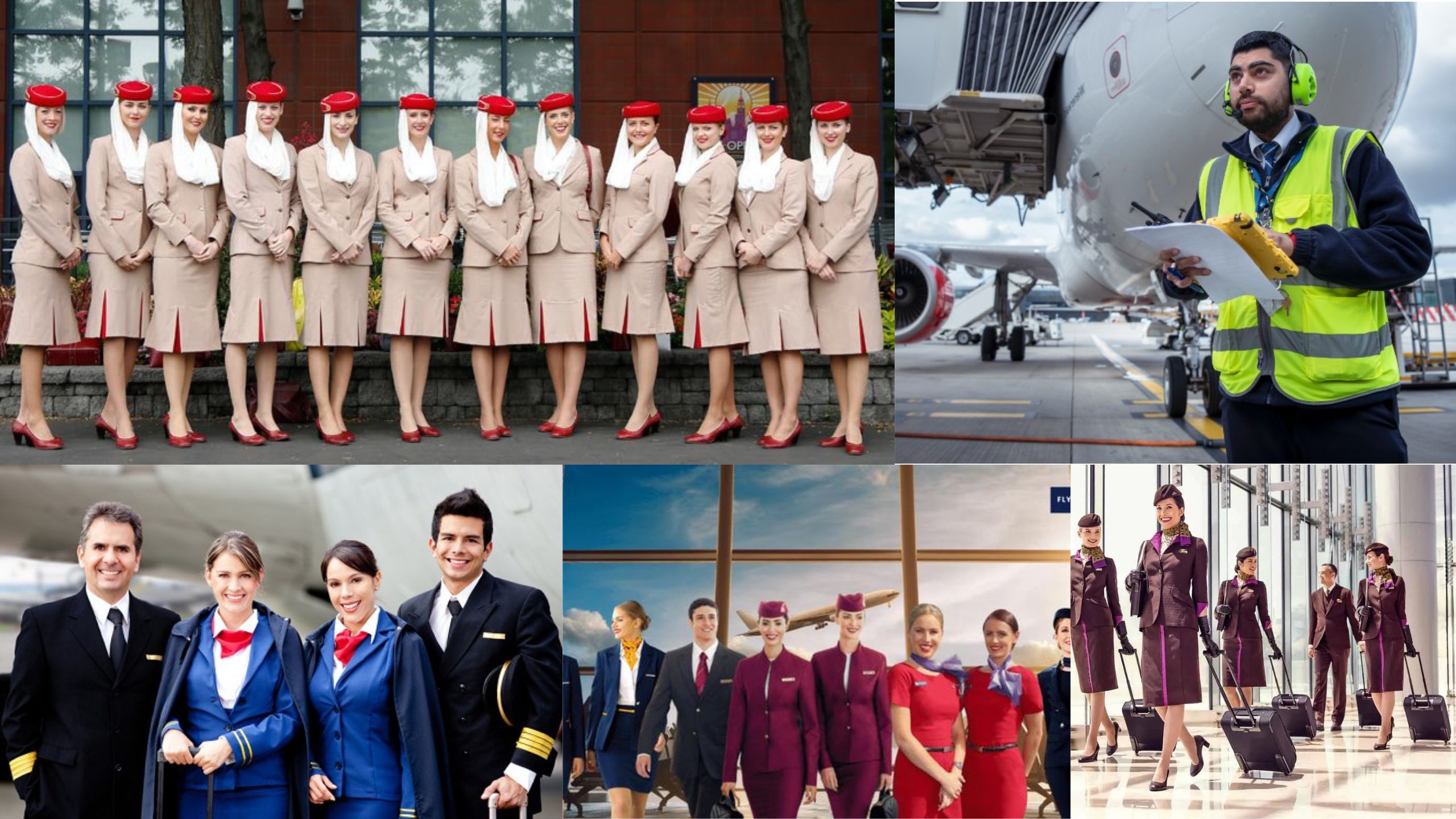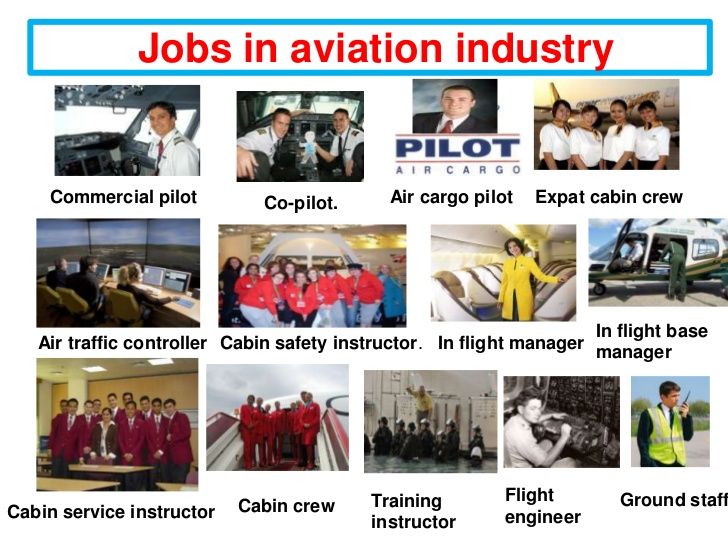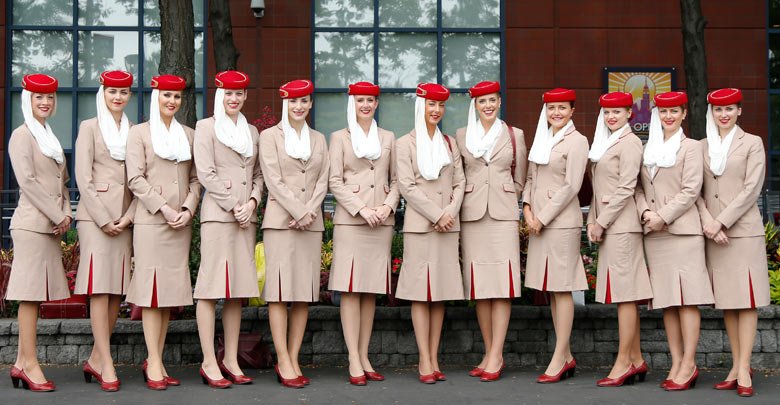Jobs Available in the Aviation Industry In the USA (2024)

Jobs Available in the Aviation Industry: Learn about the several aviation-related careers you may choose from. The aviation industry provides a variety of jobs. Continue reading for more on licensing requirements, pay ranges, and job opportunities.

Which Are Some Aviation Careers?
Professionals in the aviation industry work as pilots, air traffic controllers, and aircraft mechanics, among other roles that are related to flight safety.
In addition to doing general maintenance and repairs on various aircraft, airplane technicians can also specialize in specific aircraft parts.

To avoid collisions and guarantee safe flight, air traffic controllers operate aircraft both on the ground and in the air. Pilots are in charge of airplanes and must complete rigorous training to become proficient operators.
An overview of the information you should know before entering this field is provided in the chart below.
If I Were an Aircraft Mechanic, What Would I Do?
Any component of the aircraft, except the instrument panel, might be the focus of an aviation mechanic’s job, such as the engine or the airframe.
You may concentrate your efforts on inspecting the craft or come in after inspections to carry out repairs. You can also opt to work on particular aircraft types or portions of the procedure.

A degree in aviation technology or avionics is advantageous for aircraft mechanics. An FAA-certified aviation maintenance technician school is where many airplane technicians receive their training.
These courses include aircraft systems, including as electronics, ignition, and fuel systems, and usually take two years to finish.

These lessons teach you how to maintain and repair landing gear and hydraulic systems, as well as the various materials used to create airplanes and how they differ physically.
The FAA stipulates that to operate independently as an aviation mechanic, you must receive certifications for working on airframes, power plants, or both. However, you are still permitted to work under the supervision of someone who possesses the certification if you do not possess it.
According to the U.S. Bureau of Labor Statistics (www.bls.gov), having certification for both your power plant and airframe is preferred by airlines.
If I become an air traffic controller, what role would I play?
As a result of the diversity in air traffic controller types, assigned responsibilities differ. For instance, after receiving the flight plan, the flight data tower controller prepares the data before transferring it to the subsequent controller.
The ground controller receives the clearance from the clearance delivery controller and uses it to direct the aircraft where and when to move apart from the runway.

According to the BLS, a two- or four-year engineering degree is a good option for those who want to work as air traffic controllers.
Through the FAA Collegiate Training Initiative, more than 100 colleges are approved by the FAA to offer air traffic controller training.
Courses on aviation legislation, weather event protocols, and aircraft control principles are part of the training program for aspiring air traffic controllers.

The FAA requires you to pass a pre-employment exam to work as an air traffic controller. The pre-employment examination is not necessary if you have prior experience working as an air traffic controller for that organization or the Department of Defense.
You will need to participate in a 12-week training program to learn about the policies of the agency and the tools that air traffic controllers utilize.
If I Want to Become a Pilot, What Are My Career Options?
As a pilot, you may work for commercial airlines carrying people from one place to another or test-fly new and experimental aircraft to make sure they operate safely and correctly.
As a flight teacher, you may train people on the ground or in dual-control aircraft. You might also assess pupils’ readiness to fly independently by giving them examinations.

Colleges and universities offer degrees with a concentration intended to prepare you for a career as a professional pilot if you wish to be a pilot. While some universities provide bachelor’s degree programs, some only offer associate’s degree programs.
Either way, as an aircraft pilot, you learn how human factors may impact your job. Along with studying safe flying techniques, you learn how an airplane’s instrument panel operates and how to interpret it while in flight.
If I Want to Become a Pilot, What Are My Career Options?
You might have to pay more for tuition or other expenses for some of these programs. The FAA stipulates that obtaining a pilot’s license, having a 20/20 vision, and having at least 1,500 hours of flight experience are prerequisites for becoming a pilot.
Pilots can be classified into several categories. Commercial, airline transport and private pilot licenses are all available from the FAA. According to the agency’s website, you need to be at least 17 years old to get a private pilot’s certificate. According to the website, a private pilot’s license permits a pilot to transport people for a certain amount of business.

There are restrictions on the operations you may do for compensation if you hold a commercial pilot certificate, however, certain airlines allow you to fly as a captain if you hold an airline transport pilot license.
The FAA states that even if a helicopter pilot is regarded as a commercial pilot, you need a different license to be able to operate a rotorcraft or helicopter.
Which Related Alternative Careers Are There?
To protect everyone on board, flight attendants work inside an aircraft, ministering to passengers’ needs and handling emergencies. To gain employment, they usually require a high school degree or above.
In addition to maintaining the current equipment, aerospace engineering and operations technicians perform the development of new aircraft and spacecraft models and equipment.
They have an associate’s degree as their minimal educational qualification. The technology utilized in an airplane’s cockpit, for example, is created and maintained by electrical and electronics engineering professionals.
Jobs Available in the Aviation Industry: This type of equipment is usually too complicated and specialized for an ordinary mechanic to handle. Usually, they also need an associate’s degree.
Source: Folktimez.com



